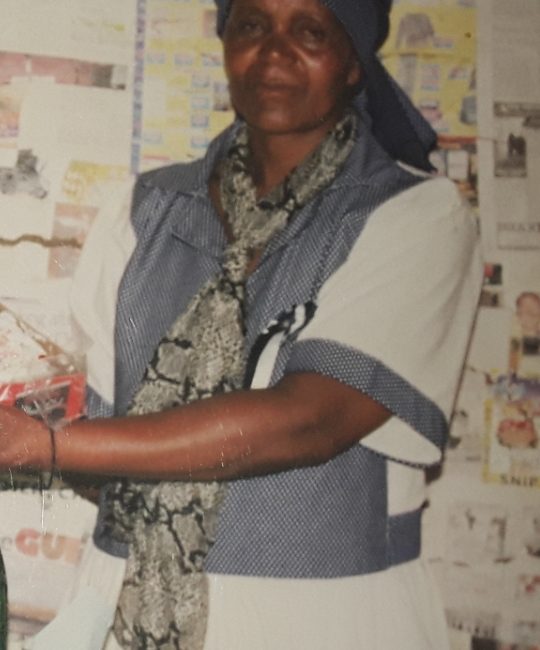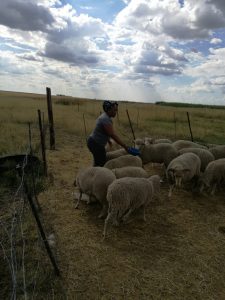At the time when the President Cyril Ramaphosa delivered his message in celebration of Women’s Day on Sunday, one of the women who listened attentively with a hope that things will soon turn in her favour was a 71-year-old Lisbeth Rapetsoa on a farm just outside Cornelia.
She listened more attentively as the President said “Today we commit to a new social compact with the women of this country informed by our collective commitment to gender equality that will be driven by bold actions”. Amongst those actions the president said is to speed up the process of giving women access to productive assets such as land.
For Rapetsoa, the sooner the promise is delivered the better, as she together with fellow farmworkers have been waiting patiently to be granted ownership of the farm, on which they reside after the farmer whom they worked promised the farm will be theirs at the time he left the farm.
And today, this elderly farm dweller is still staying at the same farm patiently hoping that the matter regarding the ownership of the farm that has been dragging for years will be resolved. The matter is with the Department of Rural Development and Land Reform.
In 1998 after the death of her husband, Rapetsoa had to take over the sole responsibility of raising her five children and also to herd the family’s livestock of cattle and sheep. She had to also ensure that her children went to school. Like many other women who grew up during that period and more especially being born and bred on the farms, life was an uphill battle. Growing up under very tough and difficult environment, with no formal education, no opportunities and the only option being that of hard labour to survive.
She had to work as a domestic worker on this very same farm and earned a paltry R40 every second month and a 60kg maize-mean.
“After the death of my husband I feared the worst, having to raise the children alone and looking after the livestock without any knowledge all I could do was to pray and pray, I had to milk cows every morning before going to work to feed my children.
“With less than ten cows that I was left with, my employer then encouraged me to be stronger and work for my kids, he advised me to multiply and expand my livestock and I also included poultry and started selling chickens and eggs and slowly things became better and better. When her former employer left the farm the workers who were still residing there were promised they will take over the ownership of the farm
“Some of my challenges at the farm is access to water for my livestock and for personal usage, I had to use wheelbarrow daily to fetch water for myself and my livestock. My wish is to leave a legacy for my family” said Rapetsoa.


